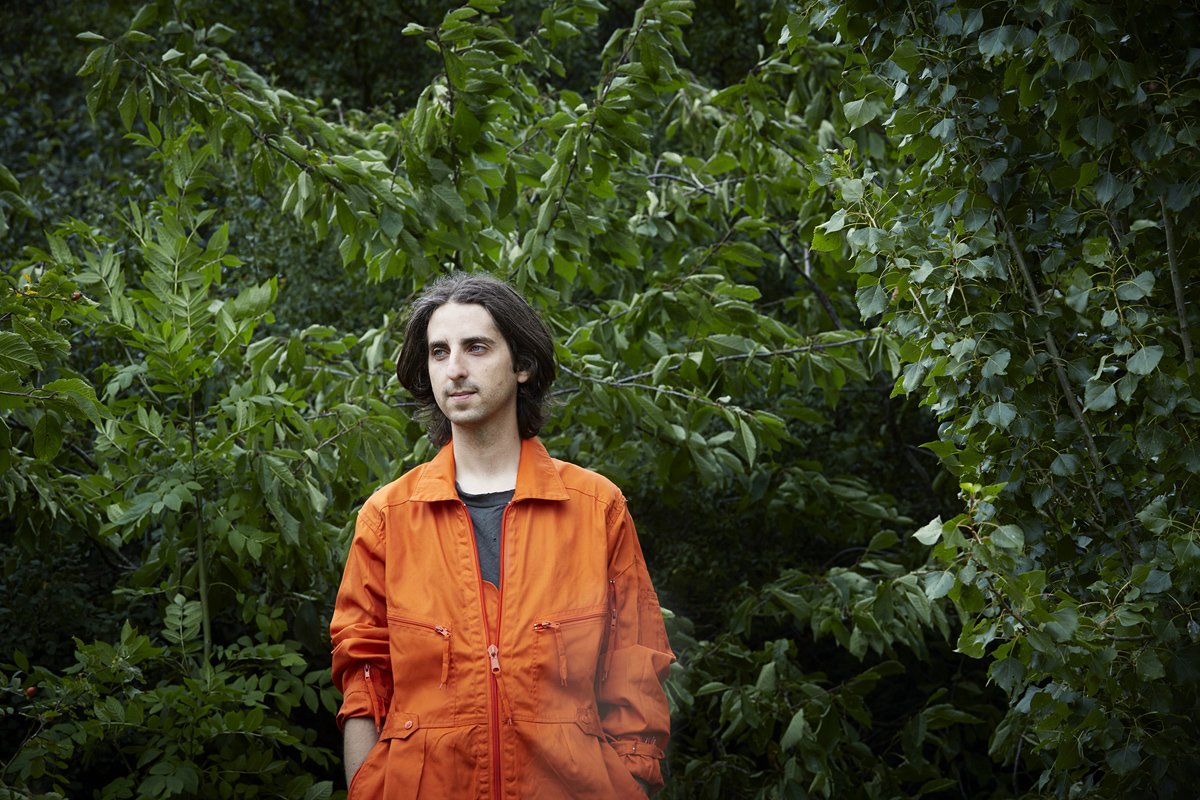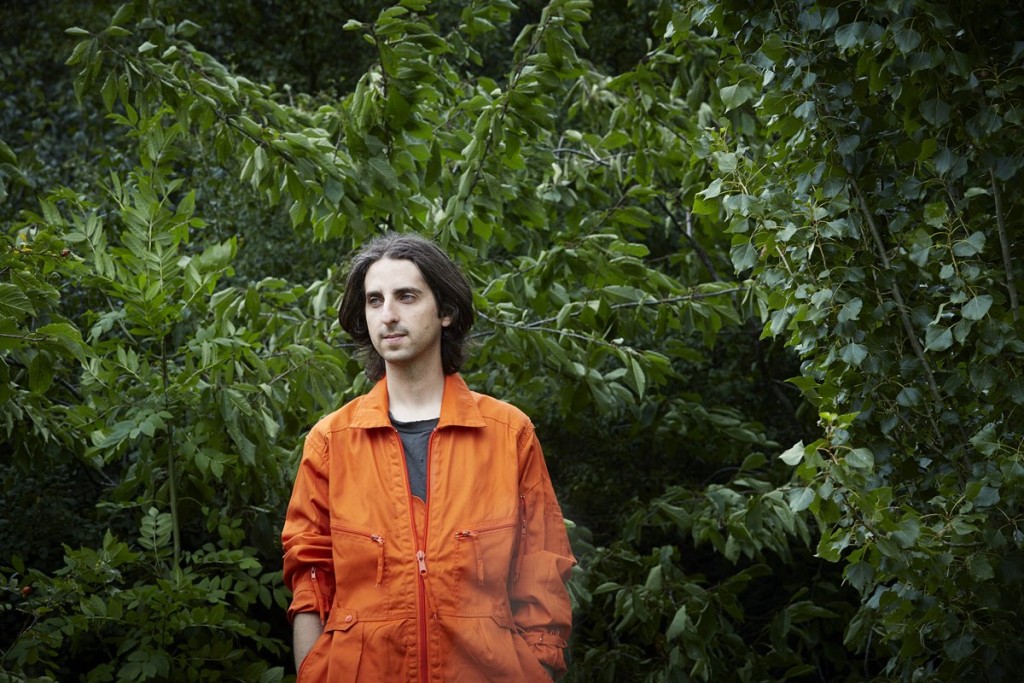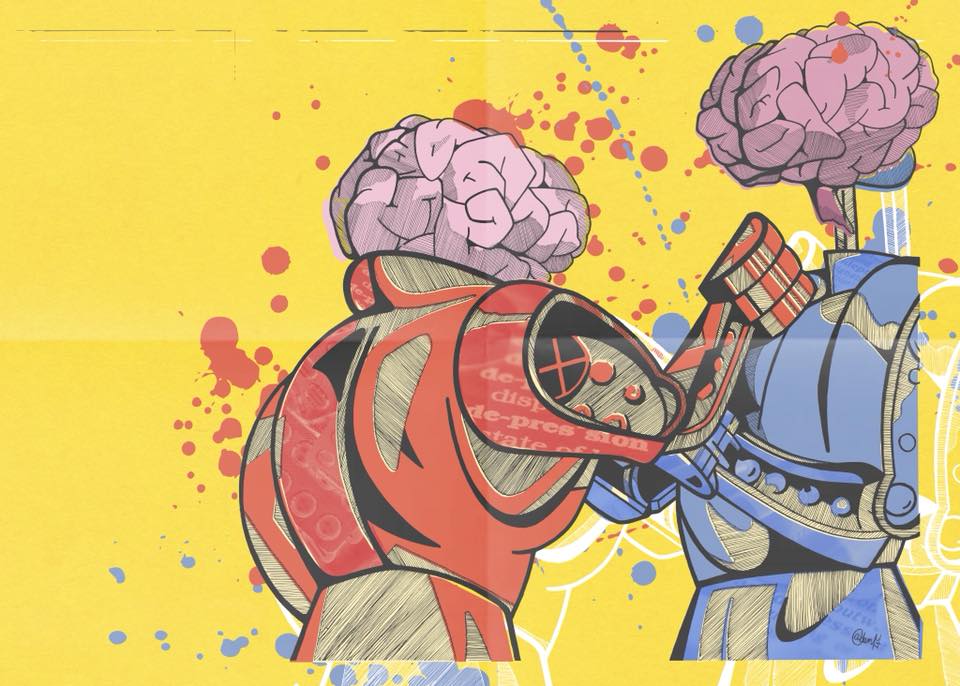Few artists have taken such a personal journey as James Holden. The electronic artist’s transformation is not subtle; Holden, now a practised bandleader, ties together jazz, folk, psychedelia and world music with an ideology rooted in trance. The Animal Spirits, one of 2017’s most interesting and colourful releases, threw these experiments loudly in the face of the listener with an unrivalled fervent energy. As a result of the critical acclaim, Holden is now in the thick of a cross-continental festival trek, including an appearance at Ireland’s very own Body & Soul this weekend. Despite this, Dom Edge had the pleasure of sitting down with James Holden to discuss all things trance, his plans for Body & Soul and that EP with Maalem Mahmoud Guinia.
Festival season is almost upon us! How is your summer shaping up?
It’s looking like a great season, although it’s going to a busy one. This record has opened up doors to all kinds of different events. We’re playing folk festivals, jazz festivals, electronic festivals, avant-garde ones, dance ones – kind of the whole spectrum of stuff. It’s sure to be a really interesting summer!
You’re playing at Body and Soul in Ireland later this summer. What can fans expect from one of your festival sets?
At Body and Soul we’re playing in a tent with quite a lot of dance music, so we’re unlikely to hold back. It’s fun this band, because it’s kind of about how folk music or jazz have kind of got elements in common with trance or African music. Even though it’s meant to be an acoustic group it’s meant to make people dance, it’s meant to hypnotic and powerful in that way, so I’m quite looking forward to it.
You were one of the curators for Le Guess Who? In Utrecht at the back end of last year. How was that as an experience?
It was really fun from the beginning. We Skyped the promoter and listed ideas, and every single one he was shitting himself with enthusiasm. The guys from Le Guess Who really know music, they’ve heard everything – it’s nuts. I was listing people who I thought I was lucky to have seen, and they were like ‘ah yeah, I saw them three weeks ago.’ It really worked I think, because they’ve got a good audience that are really open minded, and they’re just going to see stuff that they’ve never heard of but are trusting a recommendation. It was cool to see people getting into the things I’d curated, and it was great to see the stuff other people had picked as well.
Your music has evolved a lot since your early trance days, and the differences between ‘Horizons’, for instance, and ‘The Animal Spirits’ are obvious. Is there anything that’s not changed, or a central narrative throughout your writing career to date?
The idea of trance is in all of it. It’s basically all I really like when I play or make music. When I was a kid and practicing piano, instead of doing my practice I’d just sit and make nice chords and just play them over and over again, for hours, and that was before I’d ever smoked dope. That’s what I like in music, repeating stuff you can get lost in, and the way stuff changes after the hundredth listen; the way you get drawn into it. Even though ‘Horizons’ is a bit fiddly around the edges it’s basically got the same repeated chord pattern and straight after that I got more confident to kind of go with the repeat. I kind of settled into my sound. Even a year after ‘Horizons’ most of the stuff is kind of structurally the same as what I do now, it’s just that having the band and doing it in this different manner lets it have more feeling and detail. It also makes playing it live much more fun.
I read a description that you no longer explore trance as a genre, but more of a state of mind. Is this something you’d agree with?
Yeah that’s quite a nice way of looking at it. It’s always frustrated me that trance as a genre is kind of lost and has become very poppy. By the time that Ferry Corsten was famous it had lost its magic, transcendental, lost-in-the-forest kind of feeling. And it got more into the anthemic kind of stuff that’s not quite as magic; it’s got lots of feeling in it but not quite the right ones. I guess I had to get away from the genre for that reason. I’m now getting out of genres, and it’s making me feel a lot happier as a musician. Like now I’m not in the club world or fitting into any kind of techno or trance or deep-house, and not having to have people think about that about my music, it’s more fun to do. There’s less of the weight of expectation from people which can be limiting.
It feels like your experience recording Marhaba with Maalem Mahmoud Guinia and Floating Points was a real turn for you musically. Can you tell us more about how the opportunity arose?
I feel really grateful to Will and Camille, who scraped together funding. They had this idea and managed to arrange to get everyone together and I just had this email out of the blue from them. I’m so grateful that they thought of me, because it really did turn everything around. Maalem Mahmoud Guinia had played with so many people, including Pharoah Sanders who is kind of a hero for me. I already had his records in my collection and I could see that that was trance so I knew that I wanted to go and do it, but at the same time I didn’t wanna just go there and sample it and make a shit house record, because that would be really disrespectful. There was this challenge of how you go there and play with, and kind of not force them into your western cultural paradigm and meet them on the same level, as equal. It was difficult!
I took the computer, modular and my first patch and set up, and it was a disaster, there was no vibes, I couldn’t keep in time with them and just didn’t make their music better. Their music is really good, and it doesn’t need me there. That’s what I felt like after the first day, but I think everyone felt like that. I stayed up all of the first night repatching everything, just trying to make my modular synth into a real instrument, something that I can play. I had a rhythm controller and a few other modules that you can really get your hands into and play, and set it up to be this really melodic instrument. It was the next day when I took that to them and started playing, I worked out the notes pretty quickly and started to bring something up underneath what they were building, and I began to think that this isn’t bad, I feel like I’m in the song and I get where it’s going melodically. There was this moment when I could see that he thought that as well, we kind of made eye contact, and although we couldn’t communicate so well with words, it was at that moment where we connected and where I was in the band for about ten minutes. I guess that was the moment where everything flipped with me. It was great to be playing live with people like this, connecting across cultures. But that was it – I knew from that point that playing stuff live was going to be really important.
The Animal Spirits was recorded live in the studio, with no overdubs or edits. What was the reasoning behind this step?
It came about after I met a German physics professor in America, and he’d done some work on timing to kind of prove that when two people play together there’s this kind of continual feedback process. Every note that I play affects the other person, and every note that they play affects me. So if you make a slight change at the very start of the music that ripples through the whole thing, kind of like back and forwards, back and forwards. What his research proved is that you can’t fake that. The more I thought about it, the more I felt that the expression and the feeling in it could only be achieved without overdubs. Music is is a conversation, and the only way to achieve that is to set up in a room and actually have that conversation between the different players and the different parts. It’s a really big challenge technically to record it all at once. Modern production is geared towards overdubbing, and looping, and faking, and building it on the screen. In the end, once I’d learned to do all the engineering stuff, and to get the microphones in all the right place, and where to position the players within the room or whatever recording was actually really easy. We just kind of played each song two or three times and by that point we had something on tape that we were really happy with. Whereas if you’re trying to build the record it takes forever, and it’s a really frustrating process. It was really nice to not have to do that. I’m not saying I’ll never do that again but it was certainly liberating.
It feels to the listener that this is an album best enjoyed live and loud. Was this in the back of your mind whilst you were recording it?
The record is the starting point, I realised. You make this record and then you spend a year of your life playing it on tour. I kind of feel sorry for the people who do it the other way round. They make the perfect digital record and then have to recreate that on tour – that’s no fun. I knew that it was gonna evolve live so the pressure was off the record. Like these are the songs, I think they’re good songs, but when they’re live they’re different every time. It’s just part of the story. I’m kind of thinking that I might like to record it all again when we’ve finished touring to see how it’s changed. It’s quite hard to get everyone together, that’s the main problem, we’re all in different places.
A handful of the tracks were recorded during the full moon, which is a unique liner note to say the least. What did this bring to the album?
A lot of the time when I was writing it I was thinking about pagan ideas. I’m sort of a pagan, but not fully signed up, but I like things that pagans like. My dog has been teaching me about listening to nature. When you walk in the same woods every week for several years you start seeing it differently and start to know the trees, noticing the changes and listening to everything around you a bit. Iit was the full moon and it was a way of recording this moment – the whole album is meant to be one moment, recorded. That extra little bit of detail on these tracks is part of recording that moment, but it’s also part of the magic of it. Although I don’t technically believe in magic, I do think that music is a kind of it. I did study science, so I’m not going to say that the moon’s gravity affected our playing, but knowing it’s the full moon, it helped mark out the rhythm and the cycle of life – and that does affect our thoughts.
Can you tell us anything about your next album? Do you expect a similar recording/writing experience?
I’m not really sure what the next thing is going to be. I love the band so much that I’d like there to be another record with them. I think that’s what it’s going to be, but a part of me wants it to be different every time – I have to find some way that it’s moving forward. I’m also kind of buzzing, because I’ve got 80% of a new track written with the live set up. I think in about two or three weeks I’m going to introduce it to the band in the dressing room and try it on stage. That’s how we did ‘Pass Through The Fire’ – the first time we ever played it was onstage in Australia. I played it [our drummer] Tom in the dressing room a few times and talked it over and he practiced the rhythm on his knee, and we just sort of launched into it on the last track. It’s quite hard for Tom and I to get together as he’s based in Berlin, so we’re just touring together the whole time. Doing it like that made the track quite pure, you don’t have time to really think about it too much, just trying to make it good for the audience, so I feel like that’s a good way for it to come to life. By the end of the gig you’re feeling quite relaxed and confident in your abilities and how connected you are to the other people, so it’s quite a good way to do it.
It’s been 15 years since the launch of your label, Border Community. Can you tell us about the ethos of the label? Are there any upcoming releases we should look out for?
It’s weird, when it started I was a DJ, and it kind of made sense to put out all these DJ records, and then once I stopped, I felt like it wouldn’t work anymore. I didn’t seem to connect with it, and although we still received demos that were 4×4 techno that I quite enjoyed, I didn’t see the link with what I was doing. There was a little bit of a pause in our output, but this year I think we’re going to start bringing it up more. There’s two of my releases coming. The son of Mahmoud Guinia, Maallem Houssam Guinia, he came to London with his band and we did a show a couple of years ago for the Barbican. Whilst he was here we went to the studio together, and our recordings are coming out in the summer sometime. I also did the soundtrack to a documentary movie called ‘The Cambodian Spring’ and we’re also going to release that soundtrack. And then I literally can’t say who it is, but we’ve just signed a contract with someone and he’s made an album. It’s the first time that someone’s sent us a record that’s really Border Community. Normally when people send us stuff telling us that we should like it, we hate it. But this record is so beautiful and it’s really rich and detailed and folky and pagan in places. I’m really excited about releasing it. It’s not going to be until autumn, so unfortunately I can’t tell you now who it is.
How has Border Community evolved over this time period, and where would you like to see it going?
It’s got to follow my interest and where I am, that’s basically been it’s evolution. So now that my focus is on live things and recordings of things that really happen – the label has to do the same. More or less everything we’re working on is that same thing – some people in a room being recorded. I suppose for the time being that’s what we’re looking for, and wherever I end up going next, it’ll follow.
qwROTPYgFDs






